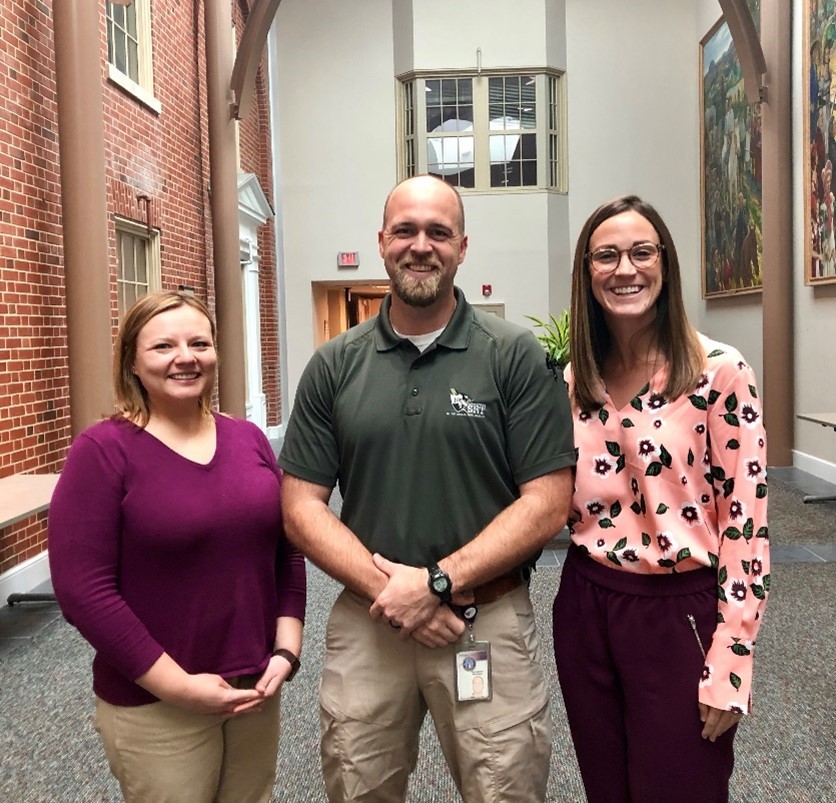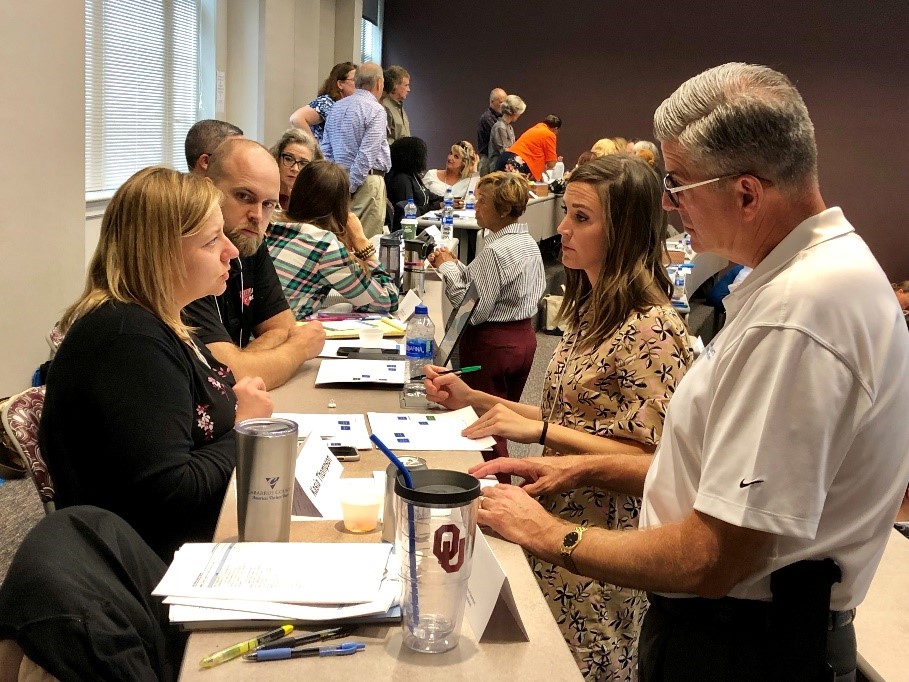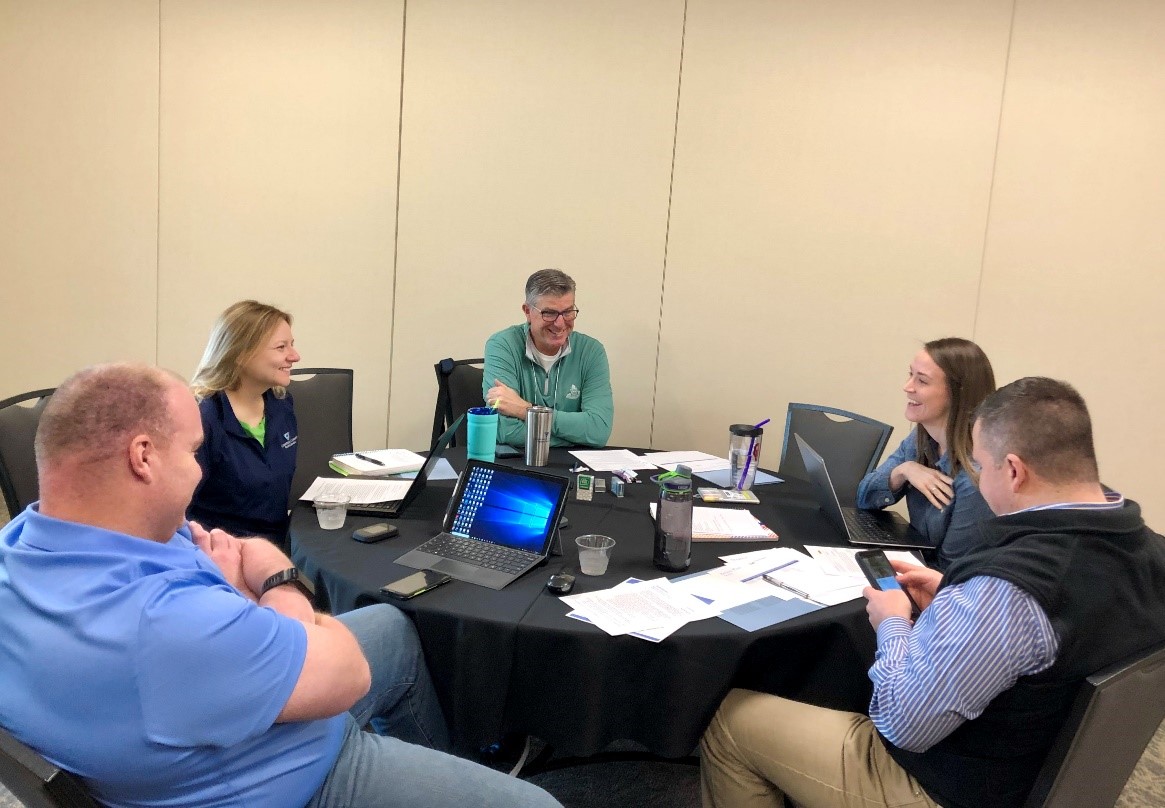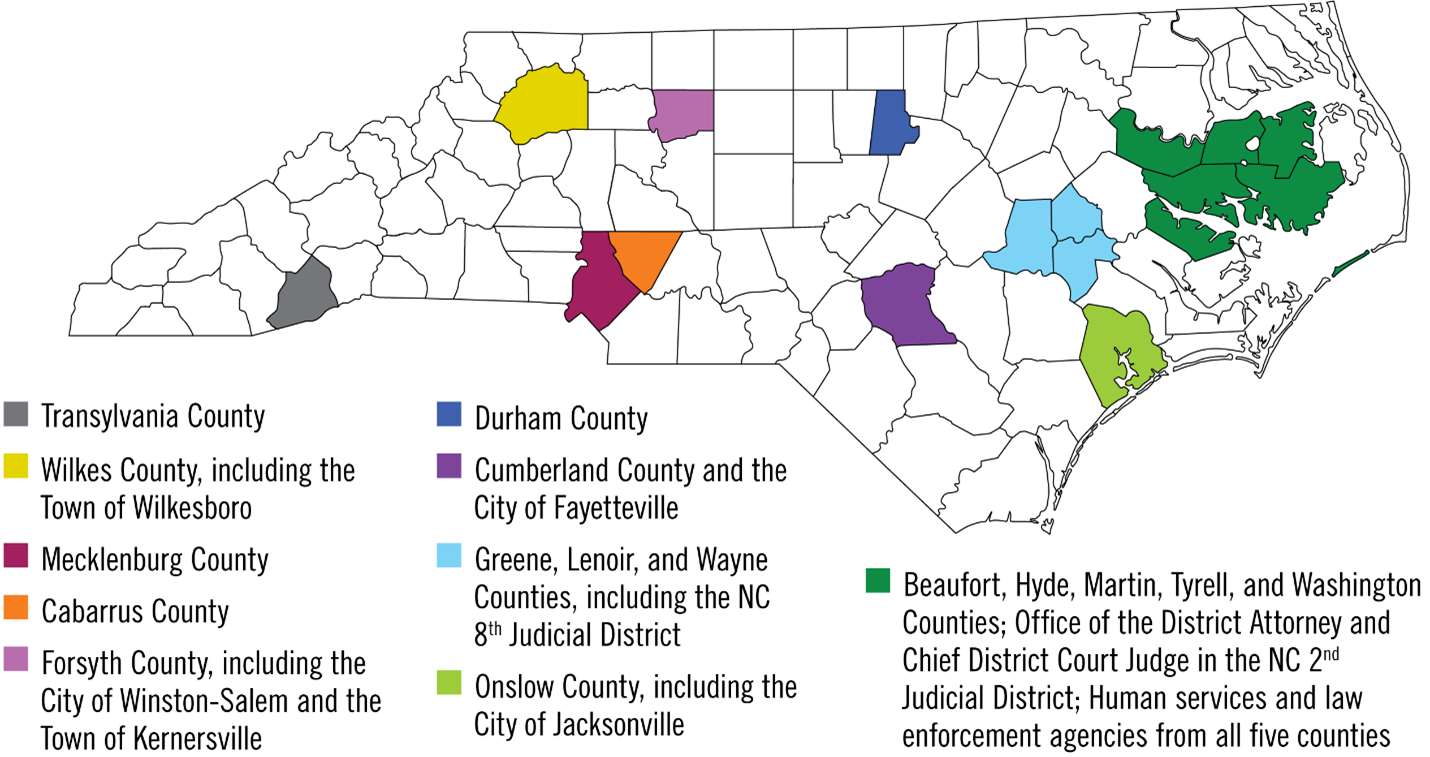Cabarrus Mental Health Advisory Board – ORP Spotlight
The Cabarrus team is proud of their accomplishments and excited to have built what they hope is a sustainable collaboration for their county. In years to come, they hope to take action toward building a more supportive recovery community.

Cabarrus Mental Health Advisory Board – Opioid Response Project Spotlight
Co-author: Mary Parry
Building a healthy, safe, and thriving county has been a guiding vision for the Cabarrus Mental Health Advisory Board during their participation in the UNC School of Government’s Opioid Response Project. The team started early, building partnerships and bringing together as many different stakeholders as they could to strengthen the impact of their work. “Collaboration is what Cabarrus County does,” said Marcella Beam, Chief Community Health Officer and team project manager. “People are willing to be at the table and stay at the table.”
The team’s dedication to collaboration led to a strengthened partnership with local law enforcement and improved programs. For example, their local syringe exchange program offered individuals using opioids small plastic bags of Vitamin C powder as a healthier way to cut their drug supply. Because lines of communication opened, police let them know the Vitamin C bags were often mistaken for cocaine by officers in contact with these individuals. As a result, organizers moved quickly to offer a more detailed label on the Vitamin C bags. They also helped law enforcement understand which local individuals were participants in the program, by educating officers about what their syringe exchange member identifications looked like. “These changes led to a decrease in false ticketing,” said Beam. “It helped us further strengthen our relationship with local police, which has been a real benefit.”
Another big accomplishment was the launch of a new community-wide resource. Ten thousand Crisis Response Booklets were distributed, helping connect community members to a comprehensive list of local resources, including phone numbers and other helpful information. These booklets can be found in the district attorney’s office, in the courts, with treatment providers, and throughout the health department. “The Crisis Response Booklet helped our community leaders know we’re all on the same page about local resources and plans,” said Beam.
Participation in the Opioid Response Project brought many new connections and shared ideas for the Cabarrus team. Attending forums with leaders from different communities led to change. The team learned about an EMS resource in Forsyth County and was able to find a way to make that fit into the Cabarrus community. “Bringing together leaders from different sectors to actually talk to each other, compare notes, and make plans together, is an experience I haven’t had before,” said Beam. “It was very different and very beneficial.”
In recent months, the COVID-19 pandemic slowed the work of the Cabarrus team. With so many team members serving in public health and safety roles, the group is pivoting to determine how the pandemic will impact their work. They plan to continue working to reach those in need with substance use disorder, despite the new challenges.
The Cabarrus team is proud of their accomplishments and excited to have built what they hope is a sustainable collaboration for their county. In years to come, they hope to take action toward building a more supportive recovery community. “We often hear, ‘there’s nowhere for me to go where people aren’t drinking,’” said Beam. “Our community would benefit from creating some kind of safe haven, but we’re not yet sure which community agency or partner could take on that role.”
Learn more about the Opioid Response Project.



